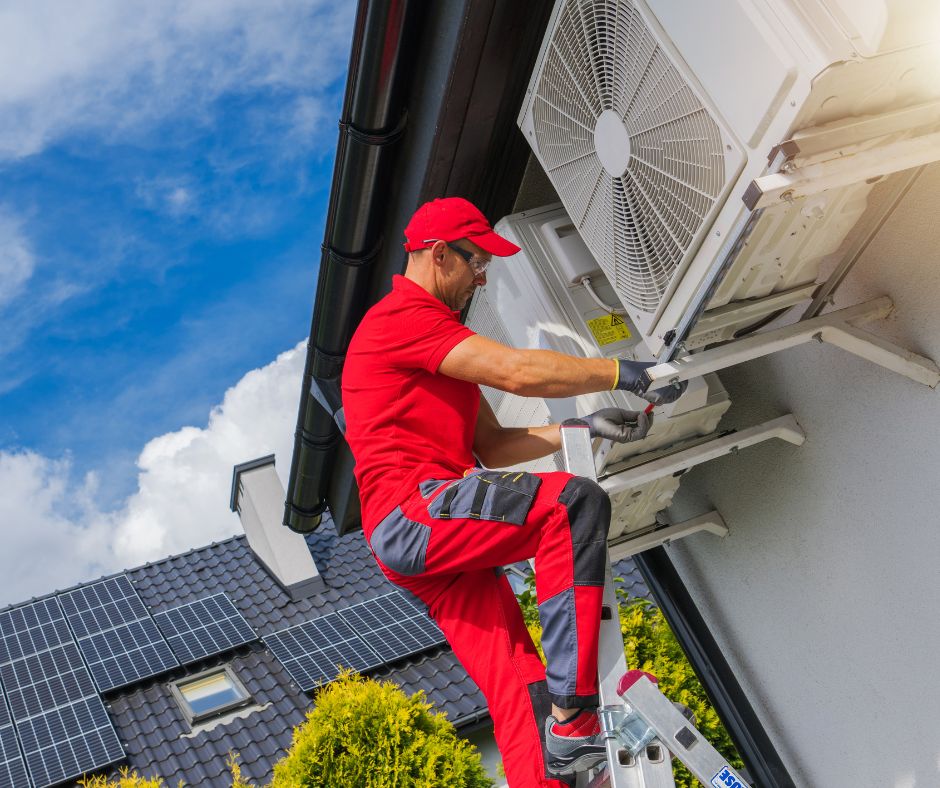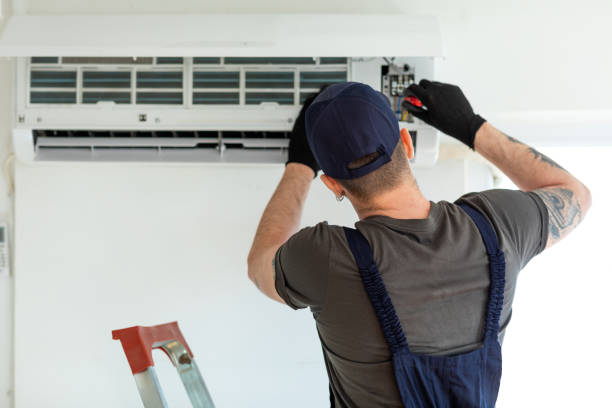When dealing with something as crucial as an HVAC system, time is of the essence, and downtime with the system can create a major headache. Nobody wants to be left sweating out on hot summer days or shivering through cold winter days.
So, to answer the burning question of how long does it take to replace an HVAC system? We’ve put together all the essential information to help you plan and organize a replacement efficiently, especially if you’re facing the unfortunate scenario of a broken HVAC system. Let’s dive right in.
Factors That Influence HVAC Replacement Duration
In answering the question, “How long does it take to replace an HVAC system?” we first need to consider some essential factors that determine the duration.

- Type of HVAC system (central, split, ductless, etc.): Let’s start with the basics – the type of HVAC system you currently have in place. Whether it’s a central system, split system, ductless setup, or another variation, each type comes with its own complexities and installation processes.
- System size and capacity: If you’re dealing with a larger HVAC system, replacing it will likely take a bit longer. Larger systems typically require more extensive installation work, which can add to the project’s overall duration.
- Existing system condition: If your current system shows signs of wear and tear or is in poor condition, additional time may be needed for removal or modifications to ensure everything runs smoothly with the new system.
- Complexity of the installation: The layout of your home and the accessibility of the installation site can also impact the duration of HVAC replacement. Factors like tight spaces or difficult access points may require extra time and effort from the team.
- Necessary ductwork modifications: For systems involving ductwork, such as central heating systems, be prepared for some additional time. Modifying ductwork can be a meticulous process, especially if there are existing damages or inefficiencies in the current layout.
- Permitting and inspection requirements: Obtaining permits and adhering to inspection requirements is an essential step in the HVAC replacement process. The time needed to navigate through these regulatory hoops can vary depending on local regulations and the efficiency of the permitting process.
- Seasonal considerations: Consider the time of year you’re scheduling your HVAC replacement. During peak seasons, HVAC companies may be inundated with service requests, leading to longer lead times for scheduling appointments.
How To Expedite The HVAC Replacement Process
We all love a speedy process. Fortunately, there are steps you can take to help us work more efficiently and ensure a smooth experience for everyone involved.
- Proper planning and scheduling: When you know it’s time for an HVAC replacement, take a moment to consider the best timing. Think about factors like the time of year, your budget, and your personal schedule. By scheduling wisely, you can avoid conflicts with holidays, meetings, or other upcoming events.
- Clearing the work area: Before the installation day rolls around, take some time to declutter the area where the HVAC system will be installed. Clear away any obstacles or unnecessary items that could get in the way. This will ensure that the team has easy access to the site and can work without any distractions.
- Preparing for installation day: Besides clearing the space, it’s a good idea to jot down any questions or concerns about your new system. This way, when the installation team arrives, you’ll be ready to discuss any specific needs or preferences you have. Plus, you’ll have the peace of mind of knowing that you’re getting expert advice from professionals in the field.
- Hiring experienced professionals: Entrust the job to experienced HVAC professionals. Hiring experts who know the ins and outs of HVAC installation can make a world of difference. They’ll have the knowledge, skills, and proper tools to get the job done efficiently and effectively. You’ll save time, money, and hassle in the long run.
So, how long does it take to replace an HVAC system?
So, how long does it take to replace an HVAC system? It depends on a variety of factors we’ve touched on earlier – like the type of HVAC system, the complexity of the installation, necessary modifications, permits, and even the season.
On average, a full system replacement – which involves removing the old system and installing a new one – typically takes about a day. But remember, this timeline can vary based on your specific circumstances. It might take less time if everything goes smoothly, or it could take longer if there are unexpected challenges along the way.
With all this in mind, it’s essential to consider all the factors that apply to your situation and follow the tips we’ve discussed to help expedite the process.



Recent Comments